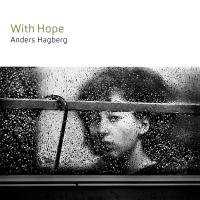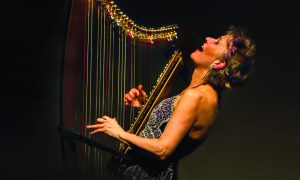
A subdued Diana Krall held forth on Tuesday at Carnegie Hall, where she gave the first of two concerts on consecutive nights with a 41-piece orchestra, augmented by a jazz trio (Jeff Hamilton on drums, Robert Hurst on bass, and Anthony Wilson on guitar). The music, much of it from her recent bossa-nova flavored album, “Quiet Nights” (Verve), maintained an aura of hushed introspection with occasional blips of swing, when her sturdy jazz pianism came to the fore.
When Ms. Krall paused to talk, her remarks — about traveling on a tour bus with her 2 ½-year-old twin sons; about meeting President Obama, who she said was unaware that her husband is Elvis Costello (he was impressed); about the similarity of New York’s recent rainy weather to the climate in her native Vancouver, British Columbia — were dry observations, offered in a low voice with barely a trace of a smile.
“Quiet Nights,” which closely follows the format of her enormously successful 2001 album, “The Look of Love,” has reversed the downward trajectory of Ms. Krall’s record sales. Both albums, arranged and orchestrated by Claus Ogerman, feature music that works equally well as ambient sound for the bedroom and restaurant and as foreground music of considerable psychological complexity.
Together Ms. Krall and Mr. Ogerman (who was absent; Alan Broadbent conducted the orchestra) treat songs as film-noir fragments in which everything remains ambiguous and unresolved. Ms. Krall doesn’t interpret lyrics in a literary manner. With her dark whispery alto, she slithers through songs in short stop-start phrases that sometimes reduce a melody to a single repeated note. One string of words may be elongated with an emphasis on a vowel or a scooped-up syllable; the next grouping may be nearly swallowed as she hurries to catch up.
When Ms. Krall paused to talk, her remarks — about traveling on a tour bus with her 2 ½-year-old twin sons; about meeting President Obama, who she said was unaware that her husband is Elvis Costello (he was impressed); about the similarity of New York’s recent rainy weather to the climate in her native Vancouver, British Columbia — were dry observations, offered in a low voice with barely a trace of a smile.
“Quiet Nights,” which closely follows the format of her enormously successful 2001 album, “The Look of Love,” has reversed the downward trajectory of Ms. Krall’s record sales. Both albums, arranged and orchestrated by Claus Ogerman, feature music that works equally well as ambient sound for the bedroom and restaurant and as foreground music of considerable psychological complexity.
Together Ms. Krall and Mr. Ogerman (who was absent; Alan Broadbent conducted the orchestra) treat songs as film-noir fragments in which everything remains ambiguous and unresolved. Ms. Krall doesn’t interpret lyrics in a literary manner. With her dark whispery alto, she slithers through songs in short stop-start phrases that sometimes reduce a melody to a single repeated note. One string of words may be elongated with an emphasis on a vowel or a scooped-up syllable; the next grouping may be nearly swallowed as she hurries to catch up.























